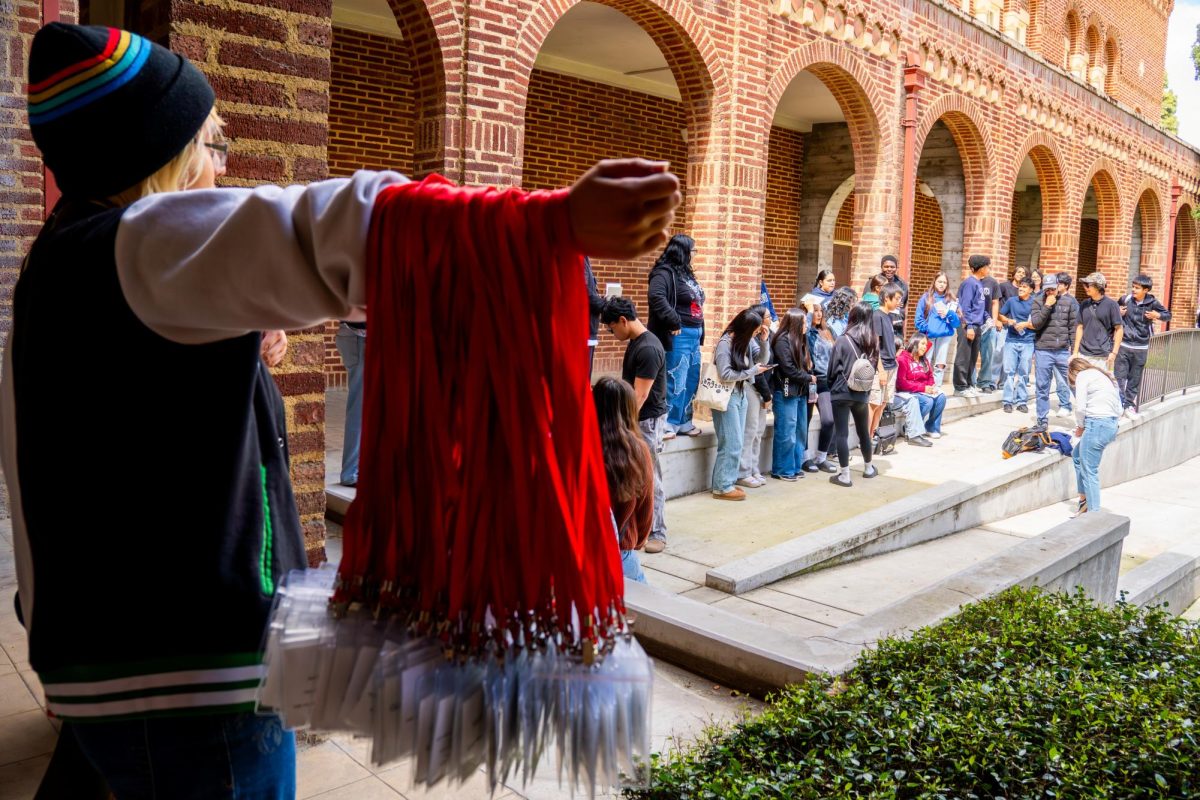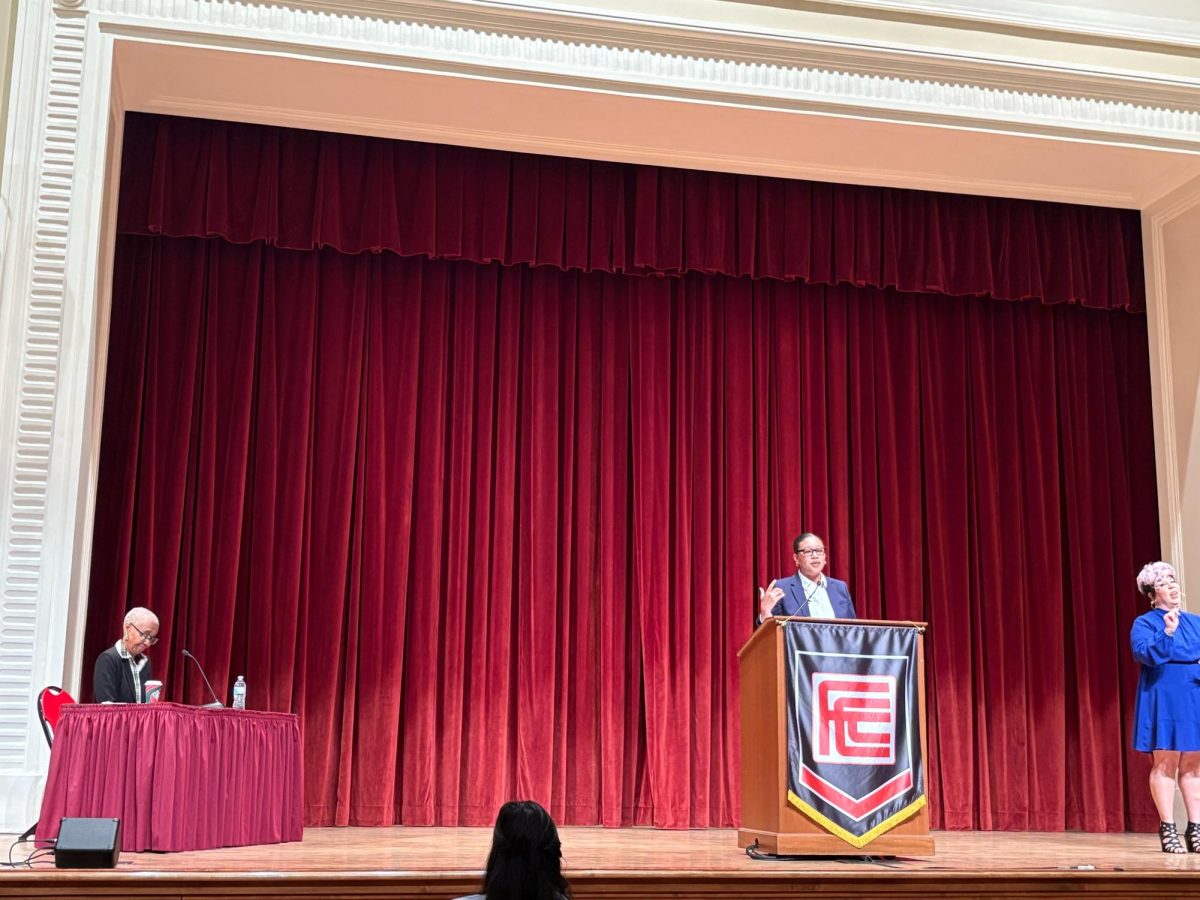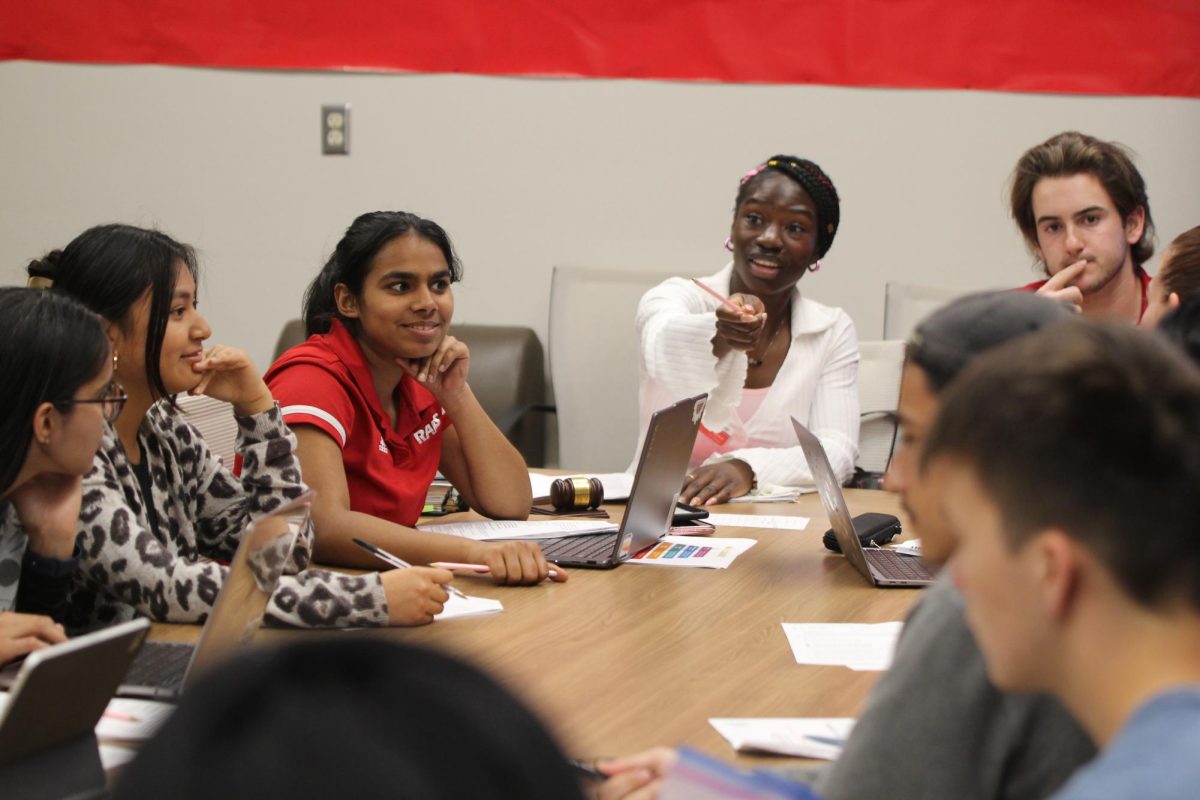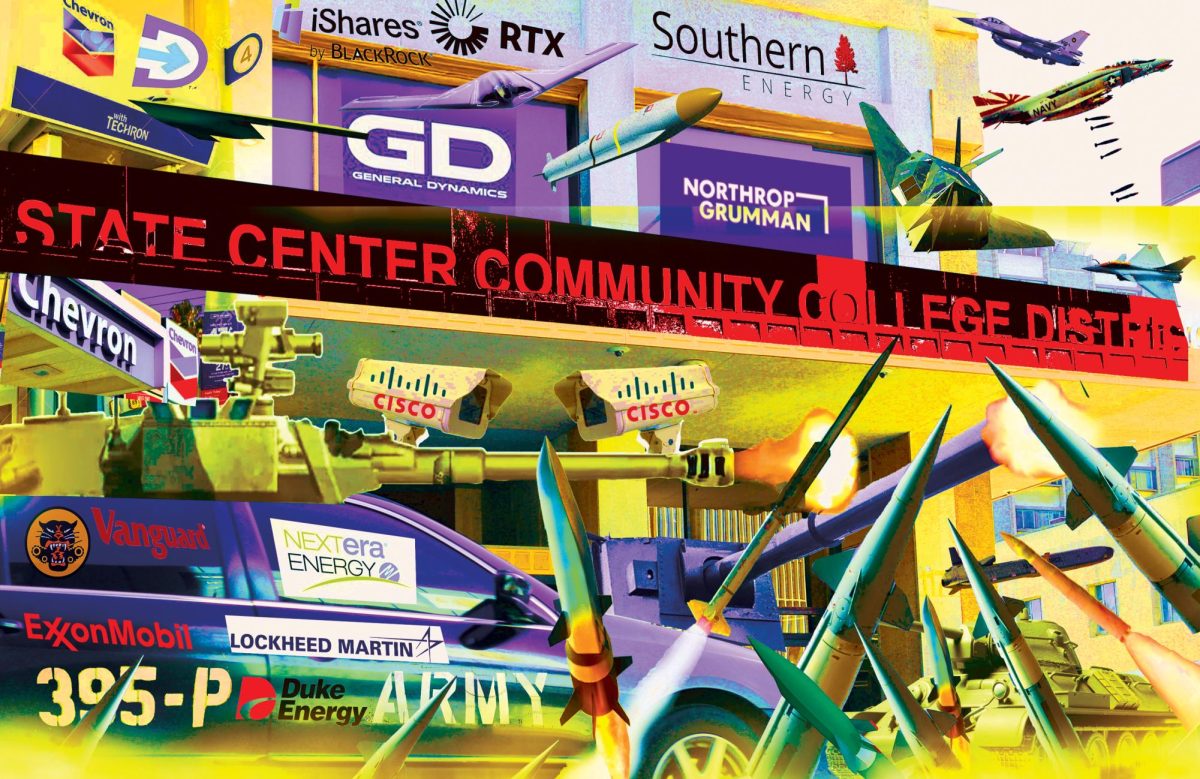Fresno City College students joined nearly 7,000 other California college students on the state Capitol to “March for Education” on March 5.
The goal for many protesters was simple — stop the repeated cuts to funding of higher education in the state.
FCC’s delegation, like every other college’s, was briefed about the legislation being promoted by the protest by a representative of the Student Senate for California Community Colleges. The legislation included an open source textbook plan, a statewide scholarship for middle class students and a new tax on millionaires with the proceeds going straight to California’s education system.
The students gathered represented contingencies from the state’s three arms of higher education — from nearly every public community college, California state university campuses and University of California campuses.
Students marched just over one mile, from Southside Park at the corner of Sixth and T streets to the Capitol building.
Soon the march, organized by student advocacy groups from the UCs, CSUs and community colleges, was joined by others affiliated with the Occupy movement and other advocacy groups, each with its own agenda.
Following the hour-long march, the student protesters rallied at the steps of the Capitol. A selection of students provided anecdotes about their plight in public education and how they they’ve been adversely affected by the cuts in education funding.
“I am the product of struggle. We are the product of struggle,” UCLA student Joelle Gamble shouted to the crowd. “We’re fired up and can’t take it no more.”
After 20 minutes of student rallying, Assembly Speaker, John Pérez, D-Los Angeles, and Senate President pro-tem, Darrell Steinberg, D-Sacramento, spoke to the crowd over their sponsored bills currently weaving through committees.
Pérez, the sponsor of the middle class scholarship bill, said that the state would have to close a tax loophole for out-of-state corporations in order to reduce the tuition costs for California’s middle class students.
“California made a promise, that every single person who worked hard in high school would have the opportunity to go to and make the most of their potential at a UC, CSU or community college,” he said. “That promise is not being kept when community colleges across California have drastic cutbacks, layoffs and fee hikes that force students out of the system.”
Steinberg, who is pushing a far-reaching plan to give students free online access to their textbooks and reduce the cost of physical texts to $20, said that the cuts to education were some of the toughest decisions made by the state legislature.
“We’ve cut billions of dollars and I’ve hated every minute of it,” Steinberg said.
FCC student, Carlos Bejarano, said he liked Steinberg’s open source textbook plan, but was concerned that such a law would be impossible to implement and that it could it could drive away textbook publishers.
Fellow FCC student, Chris De La Torre, said the current prices are unfair to college students.
“College students are getting ripped off by these high prices,” he said.
Lt. Gov. Gavin Newsom also spoke to the crowd, trying to navigate large and difficult political terrain – the three competing tax initiatives.
“I’m not sure which one’s going to make the ballot,” he said before heading to the podium. “I want to be supportive of the Governor in this context. It’s the one he believes is the best for the state.”
While assisting Gov. Jerry Brown, Newsom said he was concerned that the governor’s safety and education revenue enhancement proposal may not have enough momentum. He said that the Brown tax plan needs to consolidate support from the other two tax initiatives so it could make the November ballot.
Newsom also addressed the ever-rising fees that students were paying, saying that the 300 percent inflation was more than that of health care costs.
“We have got to reinvest in our formula for success,” Newsom said. “And that starts with higher education. If you don’t invest in the future, you’re not going to get much out of your future.”
Cindy Quiralte, FCC’s Associated Student Government president, said that the rally allows students to directly advocate for their education.
“Students ask the question: ‘How valuable is our education?’” she said. “We’re going to shout it loud and clear to the people making the decisions that education should be valued.”






